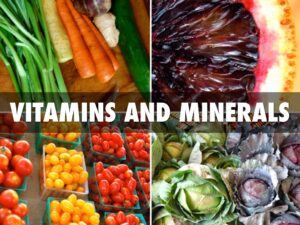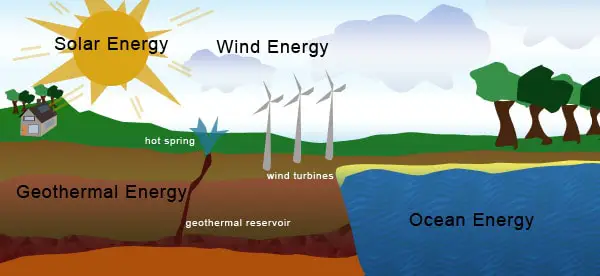
We're not getting enough vitamins / minerals

Our mineral and vitamin sources are disappearing
We need certain nutrients to survive, which includes ~25 minerals and vitamins A, B, C, D, E and K. Sadly, we no longer receive these necessary nutrients from our food supply
The Earth summit report reported that the levels of soil-based minerals in North America have dropped over 85% in the last 100 years – A 1996 country-region soil analysis detected only 20 minerals, compared to 60 minerals in 1940.Typically today, ONLY 3 MINERALS ARE SIGNIFICANTLY REPLACED in the soil: NPK – nitrogen, phosphorus and potassium.
The following practices greatly degrade mineral and vitamin content:
- Use of herbicides / pesticides – Greatly degrade mineral/vitamin content
- Commercial food preparation processes – e.g. canning, dicing/slicing, blanching/freezing, dehydration
- Post-harvest storage treatments – e.g. chemical spraying
- Picking fruit under-ripe
- Long transit times – A study of 30 fruit and vegetable truck transit miles to Chicago, showed most traveled on average 1000 – 2000 miles , with the expected impact on both produce freshness and the environment (e.g. carbon monoxide from exhaust fumes, wear and tear on roads). Pirog et al, 1998.
Other factors affect mineral levels in produce – including:
| Geographical area | Weather and climatic conditions (temperature, rainfall, flooding, drought) |
| Soil moisture | Pollution |
| Soil health (humus content, fertility, microbial activity, fertilization – e.g. green manuring / composting), | Plant variety / seed source |
| Length of growing season | Irrigation / cultivation |
| Post-harvest handling (temperature, relative humidity). |
Our habits affect mineral intake:
- Increased drinking of demineralized, purified water – produced by distillation, deionization, reverse osmosis, or other processes, removes an otherwise substantial dietary mineral source.
- Poor “Food” Choices (90% of money spent on American food is for processed foods, having poor nutritional content.)
Why are minerals so important in the body?
Minerals – ~25 Earth elements needed for our health
Many major and trace minerals are involved in cellular energy production. Mineral levels determine the number of oxygen-carrying red blood cells – Oxygen levels affect energy production.
Hormones are ineffective without proper minerals and vitamins. Hormones regulate energy production.
Minerals energize and fuel the body’s electrical system. Minerals are charged electrolytes – they provide the charge for our cell “batteries” for cellular energy production, and by their distribution either side of the cell membrane maintain cellular water balance. Minerals conduct electricity in the body for cellular communication. The majority of minerals participate as electron carriers. Eg. Iron, zinc and copper are electron carriers in proteins, during the most energy-producing part of the Cellular respiration cycle.
Minerals are your body’s building blocks – Eating food is ultimately a mineral delivery system. Minerals provide structural integrity to the skeletal system and proteins. Eg. Calcium, magnesium, phosphorus, iodine, and flourine are integral to bones and teeth.
| Does the FDA care that Americans are nutritionally deficient? |
|---|
| In 1912, Dr. Elmer Nelson, director of the Bureau of Chemistry (precursor to the FDA) was quoted as saying: “It is wholly unscientific to state that a well-fed body is more able to resist disease than a poorly fed body. My overall opinion is that there hasn’t been enough experimentation to prove that dietary deficiencies make one susceptible to disease.” One would like to think that this is no longer the foundational thinking of today’s FDA! |
Enzymes and their necessary coenzymes both require minerals for their production. Every metabolic function of the body (digestion and absorption of food) depends upon enzymes.
Minerals play a critical role in the manufacture of your DNA (cellular blue-prints). Eg. Zinc provides structural integrity to proteins involved in DNA replication (called transcription)
Why are vitamins so important in the body?
Vitamins are worthless unless your body is minerally balanced!
Vitamins are antioxidants necessary to control the free radicals produced in the body from its normal operations (e.g. metabolism). Also to neutralize free radicals produced as a result of stress or environmental toxins entering the body. There are many food-source antioxidants, but the “Big 4” are Vitamins A, C, E and D, all in short-supply by being processed out of today’s typical Western food sources. Processors do sometimes attempt to add them back in with synthetic replacements. E.g. Vitamin A– and D-added Milk, enriched bread.
Vitamins (and other antioxidants) neutralize oxidants to prevent damage to our body
Vitamin D is best obtained by exposure to the sun’s UV-B radiation. Allowing concern for getting skin cancer to deter us, we no longer partake of the sun’s natural, multi-faceted therapy as we should. Vitamin D3 production is only one of the benefits.
- Vitamins A and D are catalysts for protein utilization;
- Minerals simply can not be absorbed without them.
Vitamin A – The Grass Vitamin and Vitamin D – The Sunshine Vitamin are both naturally found in cod liver oil and butter from grass-fed cows.
B Vitamins B6, B12, Folate support the body’s major “in-house”-produced “king” of the antioxidants – glutathione (GSH). B’s are also vital for nerve support
Vitamin C is needed for collagen production (component of connective tissue throughout the body). Aids iron absorption and so much more.
Vitamin K is a blood clotting agent, supports bone health, boosts immune function, moderates blood sugar +++


























